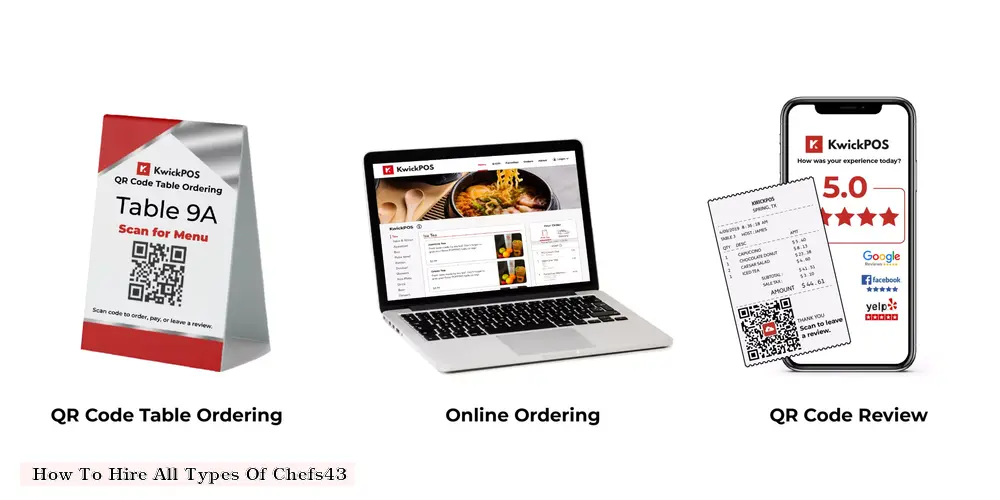

Firstly, it's important to understand that there are several different types of chefs that can be hired for a restaurant, each with their own unique skill sets and areas of expertise. These include:
1. Executive Chef: The executive chef is the head chef of the kitchen and is responsible for creating menus, managing the kitchen staff, and ensuring that the food is prepared to a high standard.
2. Sous Chef: The sous chef is the second-in-command in the kitchen and assists the executive chef with managing the kitchen and overseeing food preparation.
3. Pastry Chef: The pastry chef is responsible for creating desserts, pastries, and other sweet treats. They may also be responsible for creating sauces, dressings, and other kitchen items that require a pastry skill set.
4. Specialty Chef: Specialty chefs are skilled in a particular type of cuisine, such as sushi, steak, or seafood. They may be responsible for creating dishes that are specific to their area of expertise.
5. Line Cooks: Line cooks are the front-line troops in the kitchen, responsible for preparing and plating dishes as directed by the chefs.
6. Prep Cooks: Prep cooks are responsible for preparing ingredients for the line cooks, such as chopping vegetables, marinating meats, and setting up stations.
When hiring chefs, there are several qualities and skills that you should look for, including:
1. Culinary education and training: Look for chefs who have attended culinary school or have formal training in cooking techniques and kitchen management.
2. Experience: Look for chefs who have experience in the type of cuisine or cooking style that your restaurant serves.
3. Creativity: A good chef should be able to think creatively and come up with new and innovative dishes and menus.
4. Attention to detail: A good chef should be meticulous in their work and pay close attention to detail, ensuring that all dishes are prepared to a high standard.
5. Leadership skills: An executive chef or sous chef should have strong leadership skills and be able to manage a team effectively.
6. Organizational skills: A good chef should be well-organized and able to manage their time effectively, ensuring that dishes are prepared on time and to a high standard.
7. Sanitation and safety: A good chef should have a strong understanding of food safety and sanitation practices and ensure that the kitchen is kept in a clean and safe condition.
When recruiting chefs, you can use a variety of methods such as:
1. Online job boards: Websites such as Indeed, LinkedIn, and Craigslist can be a great resource for finding qualified chefs in your area.
2. Social media: Utilize social media platforms such as Facebook, Instagram, and Twitter to post job openings and attract potential candidates.
3. Employee referrals: Ask your current employees if they know of any qualified chefs who may be interested in a position at your restaurant.
4. Local culinary schools: Reach out to local culinary schools and universities to see if they know of any students or recent graduates who may be interested in a position at your restaurant.
5. Local restaurants: Attend local restaurant events and networking meetings to meet other chefs and restaurant owners, who may be able to refer qualified candidates.
5. Professional associations: Join local and national professional associations, such as the American Culinary Federation, to network with other chefs and restaurateurs who may be able to refer qualified candidates.
In summary, when hiring different types of chefs for a restaurant business, it's important to look for candidates with the right qualities and skills, and to use a variety of recruitment methods to attract qualified candidates. By doing so, you can build a strong and effective kitchen team that will help your restaurant succeed.
For Love of Restaurant wants to remind you that, as a restaurant owner, it is essential to understand the different types of chefs and their roles to effectively manage your kitchen staff and ensure that your restaurant is successful. We hope that this information helps you in your endeavor to hire the right chefs for your restaurant.
DISCLAIMER: This information is provided for general informational purposes only, and publication does not constitute an endorsement. Kwick365 does not warrant the accuracy or completeness of any information, text, graphics, links, or other items contained within this content. Kwick365 does not guarantee you will achieve any specific results if you follow any advice herein. It may be advisable for you to consult with a professional such as a lawyer, accountant, or business advisor for advice specific to your situation.

today
Copyright © 2026 Kwick365.com
Designed by KwickPOS is the best restaurant POS